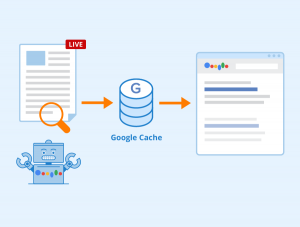Any company, site, or app that takes personal information from its users like name, location, address, IP addresses, date of birth, telephone numbers, and details of your credit or debit card is mandatory to have a privacy policy. In earlier days, a privacy policy was made with the help of attorneys. They charged a hefty amount and used to take months for the policy to get enforced. But now, privacy policy generators are available in the market. You can get them for free, and it only takes minutes to get live.
The privacy policy template is different for every company, and it is not one manuscript that everyone can use. Further, the company needs to meet the legal obligations and tailor its privacy policy as per the requirement so that no data can be misused.
While signing up on a site or an application, a section states the company’s privacy policy. Have you ever read it? Most of you would not have even paid attention to it.
This article will help you to know more about the privacy policies and ways to generate it. Here we will focus on the importance of privacy policies and how you need to generate one. You will also understand the requirement before choosing among various privacy policy generators available in the market.
Table of Contents
Importance of privacy policy
Websites have a privacy policy to determine the information collected from their users is not misused in any way. And all its information is used only for an authentic purpose. This will protect its user’s personal information from any data loss.
The privacy policy is mainly the legal document that companies should ensure accurate, easily understandable to the users as they will be the most affected by it. Policies are better than the legal documents as it is mainly explained in the lament language for everyone to understand avoiding any jargons. A well-drafted policy will never have any hidden clauses.
The main parts and stages of a privacy policy generator are:
Introduction
Here it allows the visitor to know the business background and information on the website’s functionality. Any special terms and conditions associated with collecting the data from its users need to be mentioned here explicitly. This part aims to build a bridge between its user’s understanding and the terms that can be followed to log a suit.
Information Collected
This part will let its visitors know the kind of information downloaded and collected by the application and website. The form required to be loaded shown to the user to know the type of data it will require. The data regarding hostname, tracking, data storage, IP address, and server identification should be made explicit.
Collection
In this method, you will know how the information will be categorized and processed. This information will allow the site visitor to have a better understanding of how the data will get stored and collected by the application or the website.
Importance & functions of privacy policy
Any website that needs the user’s information to fill up any personal information must have a privacy policy abided by the law. This article explains what a privacy policy is, who needs one, what it needs to include, and how to create a privacy policy.
Privacy policy mainly deals with protecting the data. It is required in every country as a legal document. The specification of policy differs from one country to another depending on its requirement. Since you can access websites from any part of the country, it needs to fulfill the standard measures.
Payment processing
This is one of the most stringent and critical areas where the privacy policy plays a vital role. It is taking the data of your addresses and names and having access to your financial information like the bank details.
If there is a breach or loss of data, the people affected by it may have serious consequences. The privacy policy in such cases should have grave security standards to protect against the breach of such data loss.
Advertisement
Privacy policy generators are useful for many non-e-commerce services like websites that generate income through advertisement mode. One of the best-known is Amazon Affiliates and Google AdSense.
The privacy policy for these sites needs publishing before as there is a lot of data sharing involved. Advertisement is such a powerful tool to attract new customers to a product. Have you ever noticed the advertisements that you see on your phone or laptop while surfing is all the things you would have added to your shopping cart or may be searched for it? This is because of the fast technology and the privacy policy created by the websites we use. It pulls in the information and applies it wherever necessary.
United States Privacy Policy
In the United States, they follow several laws that cover specific circumstances and demographics.
For example, Children’s Online Privacy Act (COPPA) protects from websites that try to pull data from children below 13. COPPA has made massive progress in child’s privacy & safety protection from the internet.
California Consumer Privacy Act (CCPA) is another regulation that took effect in Jan 2020. This act states that a website that meets the criteria under the rules and regulations of the United States will be accessible. And where any site requires information from the children, a guardian or parent must consent for such data to be filled.
What does an authentic privacy policy include?
The privacy policy content depends upon various factors. For example, the payment and banking site gathers information on the account and card details. So, it depends on what kind of information it requires and how it needs to be used.
Let’s find out what qualities an authentic privacy policy should have:
- Information like names, e-mail addresses, physical addresses, IP addresses, telephone numbers, and location tracking.
- If the cookies being used for the site, we need to know how to come out of it and what might affect the visitor’s experience.
- How the data gets collected and by whom. For example, data collected by the advertising site will be different from that of banking sites.
- How the data gets used if it is being shared with third parties.
- The data should be protected from any misuse and unauthorized access.
- It should also have control over data sharing, with the consequences that may arise by doing so.
On top of that, some websites must include some extra information. Like anybody using Google AdSense should have data about the links, cookies, and any advertisers or sellers that have been featuring on it.
E-commerce websites should have details of how the payment data will be processed, accessed, and stored. It should be clear about who is taking care of the data, as it is sensitive and is being used by many sellers for the payment procedure.
Creation of privacy policy
Well, it has been very tempting to use someone else’s privacy policy or just copying it from some other site. However, it should not be done by any means. Since every company is different and it should have its originality depending on the requirement of the site.
Some website’s privacy policies might seem perfect, but there is a very high chance of their inappropriate for your website. There may be a possibility of it being too generic and may not have everything your website requires. Also, which may fail to cover the regulatory requirements. It is also not ethically and professionally right to copy a company’s policy.
So, to ease out the entire process, you may use one of the privacy policy generators available and can be done within few minutes. And the best part is that qualified lawyers are drafting all the privacy policies. By asking you detailed queries about your business or website a customized policy, you can download or generate one instantly. And ready to add it to your site.
Enforcement of privacy policy
While you are enforcing a privacy policy, your website or company needs to let the users know all the policies.
This is generally done by the user when a pop-up box opens up while registering to accept the terms and conditions. Sometimes the user may also require to scroll and read the entire policy. Then it allows you to tick a box to complete the registration process. This ensures that the user goes through the entire terms and policy of the website.
The 2nd approach is mainly used by Google, where it directly opens the policy page rather than opening another window.
Examples of the privacy policy
The below examples are some of the best websites that show a clear example of how privacy policy should be drafted. It is straight-forward and clear for the user to understand and accept the policy.
Amazon
Amazon uses a particular software named Secure Sockets Layer (SSL) to protect the information shared on their site. It only reveals the four digits of the card number while confirming any order. It also advises its user to sign off after every transaction.
Amazon clearly states the security standards they help adapt. It shows how wisely card details are shown on the website to protect the user against any unauthorized access. It provides clear instructions to its user to avoid any mishap.

It clearly states that the information they use is entirely based on the data that the user provides and fills in the website. For example, the information we key in a while signing up, sharing a picture, or even messaging or putting up a status.
Facebook also collects data about how the user is using their site, like the pages you like or maybe the content you view. It even monitors the time and frequency you use their site.
Facebook shares a clear picture of what it collects from the user. It may use this information to make the content for the user more interesting every time you open their site.

Google clearly states in its policy that there is an option that is used to block the cookies. However, it may hinder the functionality of many of its services.
It explains to its users the potential consequences of disabling cookies. Users will be able to make a literate decision on accepting and refusing the cookies.

Microsoft
Microsoft policy states that it uses the information to provide its products to the users, depending on their usage. It also tries to communicate with the user to upgrade, personalize and improve the experience, such as mention the security updates. However, it does not use your e-mail, video calls, voice mail, chat, documents, or pictures.
Microsoft explains clearly about its usage and what information they use, and the information that remains private.

Privacy policy generators
Privacy policy generators play an essential part in making our lives easy. These generators are available online that take few minutes to get a privacy policy drafted and uploaded to your site.
Some examples of the best free privacy policy generators:
- Termify
- TermsFeed
- Privacy Policy Generator
Lastly, you need to read through all the policies and terms that you accept using any website. Many fraudulent activities can take place due to the click on the policy acceptance box. So be careful the next time you click on the terms and conditions pop-up. Also, if you are an entrepreneur, always remember to draft your terms and condition using the privacy policy generators that are available at ease. The privacy policy is the essence of your company for the user. Hence ensure you customize it as per your requirement.




























